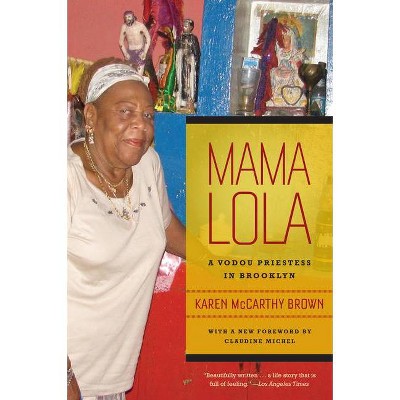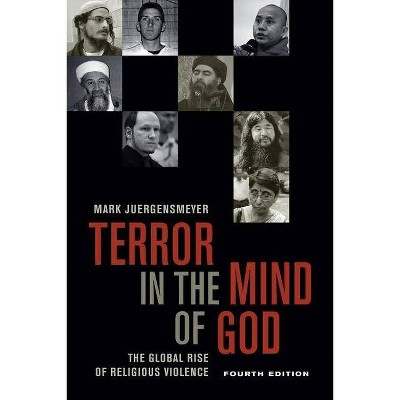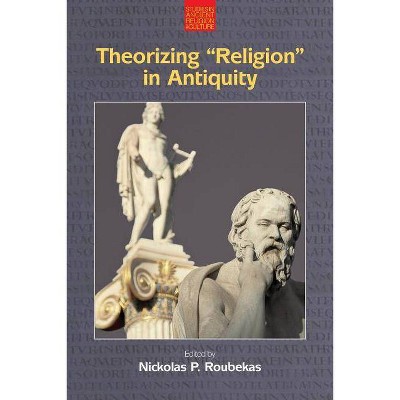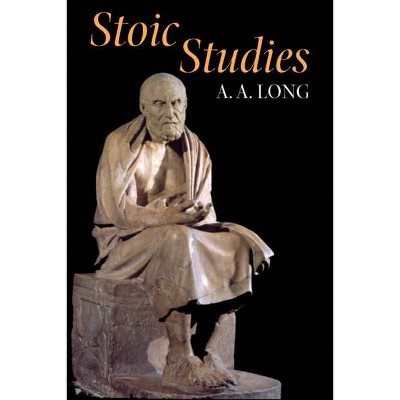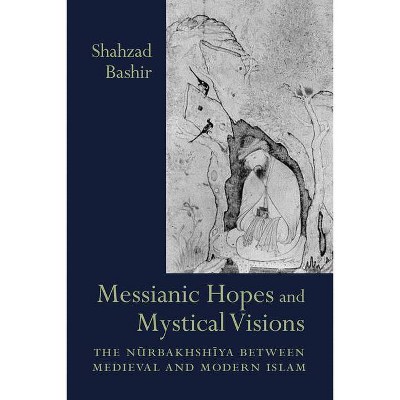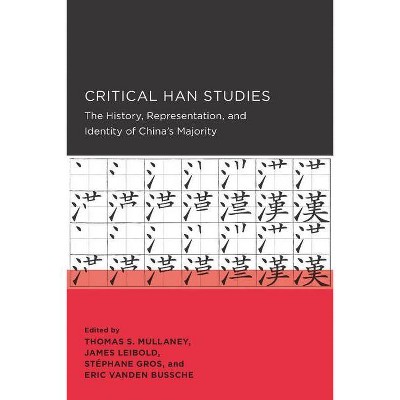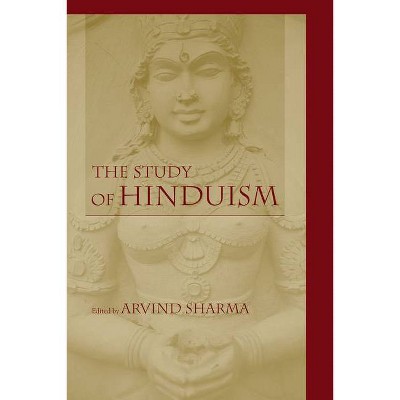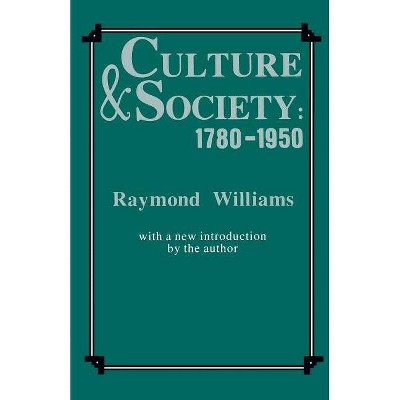A Culture of Conspiracy, 15 - (Comparative Studies in Religion and Society) 2nd Edition by Michael Barkun (Paperback)
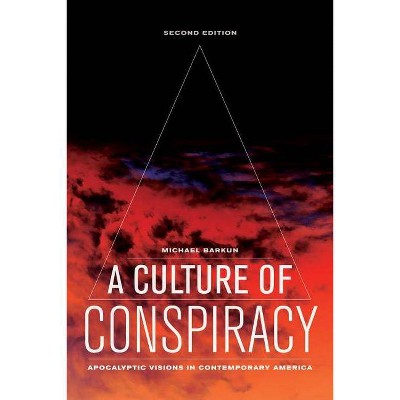
Similar Products
Products of same category from the store
AllProduct info
<p/><br></br><p><b> Book Synopsis </b></p></br></br>American society has changed dramatically since <i>A Culture of Conspiracy</i> was first published in 2001. In this revised and expanded edition, Michael Barkun delves deeper into America's conspiracy sub-culture, exploring the rise of 9/11 conspiracy theories, the "birther" controversy surrounding Barack Obama's American citizenship, and how the conspiracy landscape has changed with the rise of the Internet and other new media.<br /><br />What do UFO believers, Christian millennialists, and right-wing conspiracy theorists have in common? According to Michael Barkun in this fascinating yet disturbing book, quite a lot. It is well known that some Americans are obsessed with conspiracies. The Kennedy assassination, the Oklahoma City bombing, and the 2001 terrorist attacks have all generated elaborate stories of hidden plots. What is far less known is the extent to which conspiracist worldviews have recently become linked in strange and unpredictable ways with other "fringe" notions such as a belief in UFOs, Nostradamus, and the Illuminati. Unraveling the extraordinary genealogies and permutations of these increasingly widespread ideas, Barkun shows how this web of urban legends has spread among subcultures on the Internet and through mass media, how a new style of conspiracy thinking has recently arisen, and how this phenomenon relates to larger changes in American culture. This book, written by a leading expert on the subject, is the most comprehensive and authoritative examination of contemporary American conspiracism to date.<br /><br />Barkun discusses a range of material-involving inner-earth caves, government black helicopters, alien abductions, secret New World Order cabals, and much more-that few realize exists in our culture. Looking closely at the manifestations of these ideas in a wide range of literature and source material from religious and political literature, to New Age and UFO publications, to popular culture phenomena such as The X-Files, and to websites, radio programs, and more, Barkun finds that America is in the throes of an unrivaled period of millenarian activity. His book underscores the importance of understanding why this phenomenon is now spreading into more mainstream segments of American culture.<br /><br /><p/><br></br><p><b> From the Back Cover </b></p></br></br>Praise for the First Edition: <br /><br />Tracing the beliefs in various conspiracies and mega-conspiracies in literature, apocalyptic and political writing, and popular culture, Barkun creates an exceptional and invaluable genealogy of the extraordinary permutations that these ideas have undergone since WWII and, of course, as a result of the Internet. Barkun dives into the religious and political matrix of what some call the lunatic fringe, forcing us to look at the revival and spread of conspiracist thinking on an even grander scale into broad reaches of American culture. For those who think conspiracy thinking is a fading phenomenon, or a cultural phenomenon of little significance or creativity, think again. Welcome to the third millennium.--Richard Landes, Director, Center for Millennial Studies at Boston University; editor of <i>The Encyclopedia of Millennial Movements</i> and author of <i>Relics, Apocalypse, and the Deceits of History</i><br /><br />Millennial dreams, apocalyptic nightmares populated by agents of the Antichrist, space aliens, and acolytes of the New World Order-With a calm approach and scrupulous academic bearings, Barkun navigates through the reefs of conspiracist allegation from the cosmic to the comic, from Biblical prophecy to Internet alerts.--Chip Berlet, co-author of <i>Right-Wing Populism in America</i><br /><br />This is a gripping, and at times scary, book. Michael Barkun, one of our most respected political scientists, has produced a meticulously researched and highly perceptive account of those who find credible an incredible assortment of nefarious conspiracies emanating not only from the Jews, Masons, Catholics and politicians in our midst, but also from ' out there.' This book should be read by everyone who believes that there are some ways of checking the differences between truths and fantasies - and by everyone who doesn' t.--Eileen Barker, Professor of Sociology, the London School of Economics<p/><br></br><p><b> Review Quotes </b></p></br></br><br>"Barkun [is] astonishingly well-grounded in literary, oral, and media sources, offering many insights into contemporary social experience. . . . That the beliefs described . . . are bizarre ought not to imply that they are innocuous or unworthy of careful observation."-- "Western Folklore"<br><br>"If Michael Barkun had endeavored only to document and catalogue wild and untamed strands of American conspiracy beliefs, this book would have still been a massive and worthy undertaking. Yet Barkun structures the book not with his impressive and highly readable intellectual histories of various conspiracy beliefs and their relationships with one another, but with a basic epistemological challenge: How do we really know what is true? . . . <i>Culture of Conspiracy</i> is both a vivid history and wary explanation of why the strategy of obfuscating the facts of the world with unfalsifiable rhetoric and fearsome paranoia has always existed to some degree at both the fringes and the center of our nation's popular thought."-- "Terrorism & Political Violence"<br><br>"Like all good works of scholarship, A Culture of Conspiracy raises questions and invites further research. . . . Ideas, even bizarre and marginalized ideas, do have consequences, and we ignore them at our peril. Barkun's explorations, like the canary in the coal mine, warn us of what may lie ahead."-- "Christian Century"<br><br>Scholarly but fluently written and free of excessive jargon, Barkun's exploration of the conspiratorial worldview combines sociological depth with a deadpan appreciation of pop culture and raises serious questions about the replacement of democracy by conspiracy as the dominant paradigm of political action in the public mind.-- "Publishers Weekly"<br><p/><br></br><p><b> About the Author </b></p></br></br><b>Michael Barkun, </b>Professor Emeritus of Political Science at the Maxwell School, Syracuse University, is author of <i>Religion and the Racist Right: The Origins of the Christian Identity Movement </i>(revised edition 1997) and <i>Disaster and the Millennium </i>(1986), among other books.
Price History
Cheapest price in the interval: 29.49 on October 22, 2021
Most expensive price in the interval: 29.49 on November 8, 2021
Price Archive shows prices from various stores, lets you see history and find the cheapest. There is no actual sale on the website. For all support, inquiry and suggestion messages communication@pricearchive.us
